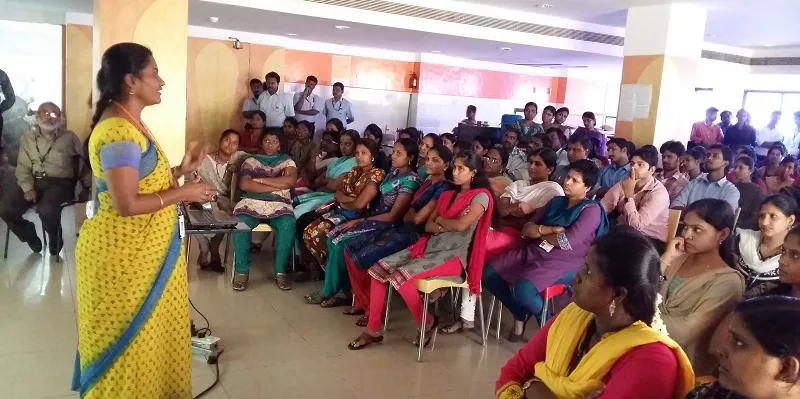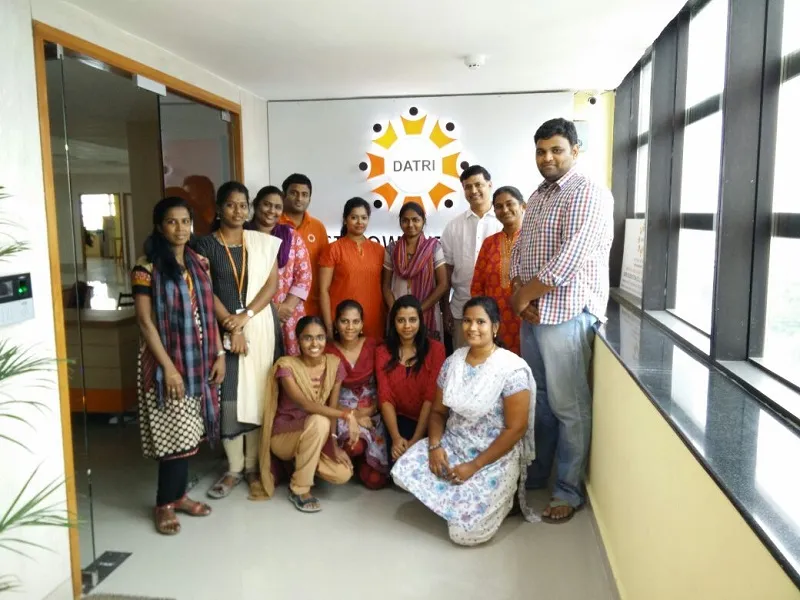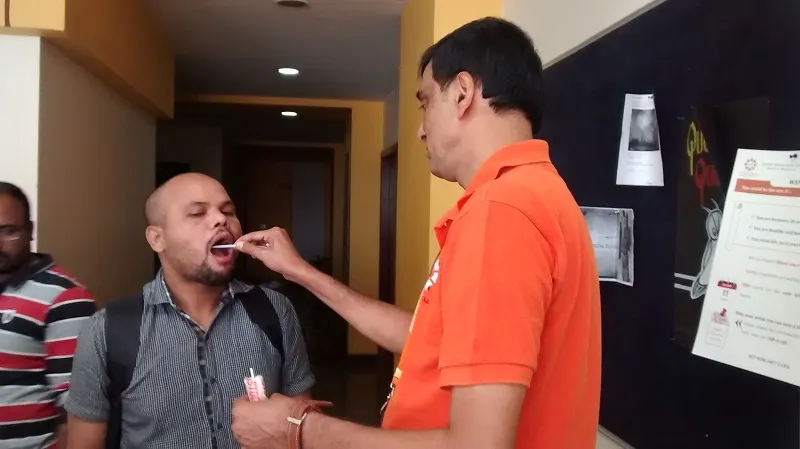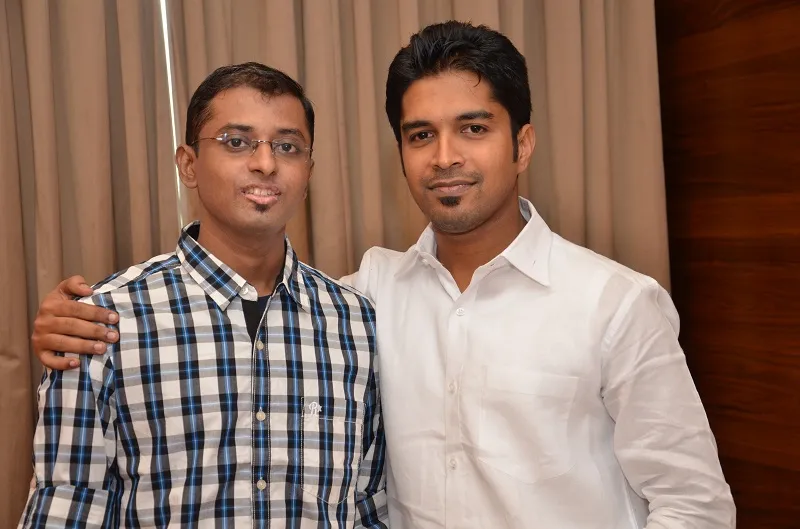96,000 registries and counting – DATRI is revolutionizing blood stem cell donation in India
“It all started when I was in the USA and someone I knew needed a blood stem cell transplant to treat Leukaemia. Since she was of Indian-Pakistani origin, we could not find a match in the US registries for her. I realised that ethnicity plays a major role in finding a genetically matched donor.”
Closer home the problem is bigger. “10,000 babies are born with Thalassemia every year in India. Every day, about 40 people are diagnosed with blood disorders in India”, says Raghu. Though people with blood disorders like Leukaemia, Lymphoma, and Thalassemia can be cured through a blood stem cell transplant from a genetically matched donor, there is only a 25% chance of finding a match from within the family. People who do not find matches within the family have no option but to rely on genetically unrelated donors. But what are the chances of finding a match who is willing to be a donor? Raghu tells us “Anywhere between 1 in 10000 to 1 in 2 million”.
The answer

The answer to make these numbers better lies in a registry – a structured base of donors whose genetic typing is available in an instant. Raghu moved back to India and wanted to setup an Indian registry to help many such people of Indian origin suffering from fatal blood disorders and struggling to find the right donor. In 2009, along with Dr Nezih Cereb, President and Co-Founder of Histogenetics, a State-of-the-Art Lab specialised in Human leukocyte antigen (HLA) Typing, and Dr Soo Young Yang, Chairman and Founder of Histogenetics, Raghu set up DATRI, which translates to ‘donor’ in Sanskrit.

Managing the entire loop

The loop starts with awareness sessions across different urban and rural parts of India. Interested individuals sign up a consent form and a cheek swab is taken from the donor. The cheek swab holds the genetic information required for creating a database and looking for matches when the time comes. This completes the registration. When a patient puts up a request for a match, the search for a match is run in Datri’s database to find a match. If a match is found, a verification test is done to ensure that the individual is indeed a match. Once a donor is ready, Datri’s team takes the individual through a master health checkup to ensure that he/she is fit and does not have any infectious diseases like Hepatitis B, HIV etc., The donor is then given an injection (Filgrastim) for five consecutive days, this mobilises the stem cells from the marrow into the blood stream. The medication does not affect the donor’s every day routine. The actual process of collecting blood stem cells is a 3-4 hours outpatient process to collect blood stem cells. The donor can resume his/her daily activities shortly after donation. The loop doesn’t end there. The Datri team takes care of getting the stem cells to the donor, anywhere in the world.
The curious case of Indian donors

Ignorance sometimes is not bliss. Raghu says, “There are some who instantly accept to donate their blood stem cells once they are found to be a match. Such donors are those who usually have a complete understanding of the procedure and its potential to save a life. There are others who become very sceptical and not sure if they should donate. Not many people know that they could be the only hope for someone’s survival. Also, a lot of them do not know that a Peripheral Blood Stem Cell (PBSC) donation is a simple, harmless and a short procedure. In a society like ours, it is a challenge to educate and earn trust because there are so many irrelevant taboos and cultural factors to overcome.”
Raghu points to another India specific dynamics that plays into getting donors on board and finally to donate. “In India, the decision-making is not just in the hands of the donor but also the parents and family members. A donor who registered with us and is now found to be a match after 2 years, might be married and wants to get the buy-in from his/her spouse, in-laws, etc.” In such cases, Datri has a dedicated team of counsellors who patiently address all concerns of the potential donor and his family members. They set an appointment with a doctor who can give the donor’s kith and kin assurance. “Only after they are all fully convinced, do we accept them as a donor.”
Managing the finances
Datri is a not-for-profit organization with 80G exemption for monetary donations. They are able to sustain because of the long term credit offered by Histogenetics for the HLA typing, and donations from corporates, and fees from patients towards reimbursement of expenses incurred during the blood stem cell collection process.
Impact
DATRI started off in 2009 with a mere 3000 registered donors on the registry. It was in their third year of operations when they we were successful in facilitating the first blood stem cell donation. In 2011, they were able to facilitate 3 donations in total. By 2013, things started picking up pace. They had close to 40,000 registered donors and had facilitated 25 donations. Today, they have been successful in conducting 700 donor drives across the country and the registry is just 4,000 short of a lakh!

The paucity of willing donors is obviously a challenge but Raghu shares a heart-warming story on a parting note. “Saranya Thangam, is a young lady from a farming family in Bodinayakanur. She had registered with Datri during one of the donor drives conducted in her college. Two years later, when she was found to be a match, she was ready to donate her blood stem cells to save the life of a child.” Saranya’s recipient has recovered well and is enjoying his new lease of life. Raghu adds, “This is extra special because of the readiness and the true kindness portrayed by a young lady from a conservative background.”
Datri aims to register 1 Million donors in India and in doing so be able to save more than 50% of the patients looking for a genetic match.







